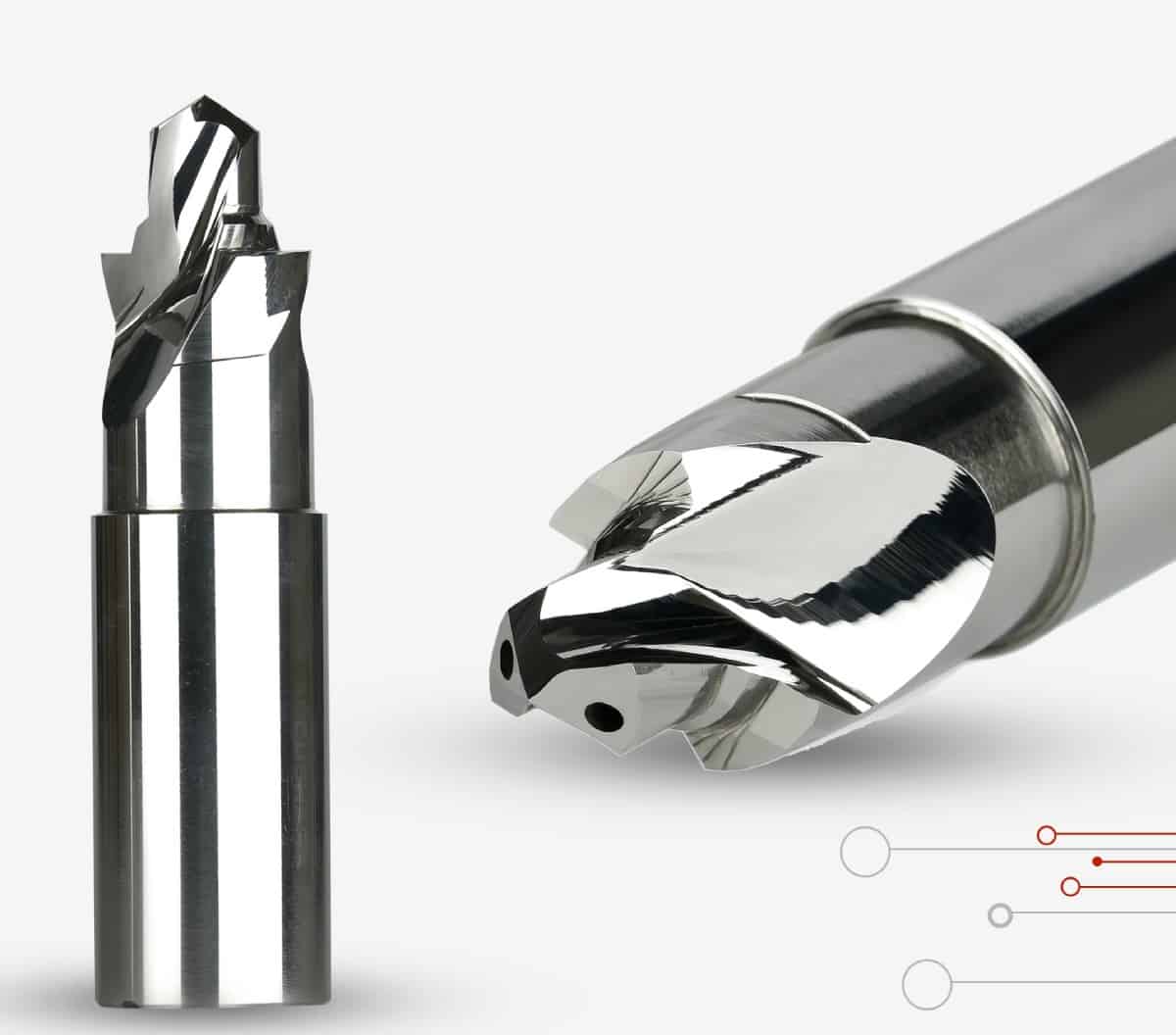In the intricate world of machining, the transition from traditional High-Speed Steel (HSS) twist drills to advanced solid carbide drills, indexable insert drills, and multi-function carbide drills has presented manufacturers with a plethora of choices. Accusharp, a leading player in the industry, has positioned itself as a reliable provider of high-quality tools, with solid carbide drills being a standout in its product lineup. This comprehensive guide aims to demystify the process of selecting the perfect solid carbide drill, ensuring that your machining endeavors are met with precision and efficiency.
Understanding the Basics
Solid carbide drills are renowned for their durability, heat resistance, and exceptional cutting performance. Comprising a combination of tungsten carbide and cobalt, these drills offer unparalleled hardness and toughness, making them well-suited for a variety of materials. Accusharp Cutting Tools Pvt. Ltd. has consistently delivered solid carbide drills that adhere to the highest industry standards, ensuring longevity and precision in every cut.
Key Factors in Choosing a Solid Carbide Drill
- Application: The nature of the material being drilled is a crucial factor. While HSS drills may suffice for mild steel, tougher materials like H-13, S-7, A-6, D-2, or 420SS demand the superior performance of solid carbide drills. Accusharp provides a range of drills tailored for different applications, from stainless steel to aluminium and hardened alloys.
- Size of Hole: The size of the hole dictates the type of drill needed. For holes under 0.5 inches, solid carbide is essential, and Accusharp offers a comprehensive range covering almost all size requirements.
- Coolant-Thru Drills: Opting for coolant-through drills is generally recommended, as they outperform external coolant drills. Accusharp emphasizes the importance of coolant-thru designs for enhanced performance regardless of the specific carbide drill chosen.
- Interrupted or Contoured Cuts: Drilling in challenging conditions, such as interrupted or contoured cuts, requires precision and reliability. Solid carbide drills, with their reduced propensity for deflection, often outshine insert drills in such scenarios.
- Surface Finish Requirements: The finish left by the drill matters, and solid carbide drills generally provide excellent surface finishes. However, factors like machine rigidity, coolant quality, speeds and feeds, material type, and tool holders can influence the final outcome.
- Size Tolerances: For precise hole requirements, solid carbide drills are often the preferred choice.
Coated or Uncoated Carbide Drills?
The decision to use coated or uncoated carbide drills depends on various factors. Accusharp acknowledges the complexity of this decision and offers a range of coatings, such as TiN, TiCN, TiAlN, and AlCrN, each tailored to specific applications. The choice between coated and uncoated carbide drills requires careful consideration of the machining conditions and material properties.
Advantages of Carbide Drill Bits
- Strength: Carbide drill bits are known for their exceptional strength, making them suitable for drilling through tough materials like steel.
- Precision: The ability to cut smaller bits with precision sets carbide drill bits apart, ensuring accuracy in various applications.
- Durability: Despite being more expensive, carbide drill bits offer excellent value for money due to their durability and the possibility of sharpening for extended use.
- Versatility: Carbide drill bits have become a jack-of-all-trades, finding applications across various industries, from agriculture to construction.
- Environmental Friendliness: The durability of carbide drill bits contributes to their environmental friendliness, as they can be recycled and repurposed after use.
Applications of Carbide Drill Bits
Carbide drill bits find applications in a diverse range of industries, including tool cutting, PCB manufacturing, woodwork, gas and oil projects, and masonry. Their strength and precision make them indispensable in scenarios where reliable hole drilling is paramount.
Carbide Drill Bits Buying Tips
- Project Consideration: Choose a carbide drill bit based on the specific requirements of your project. Consider the type of drill bit that works best for your application and the type of drill you’ll be using.
- Size Matters: Factor in the size of the hole you need to drill. While most drills can handle sizes from 1mm to 20mm, industrial drills may offer a broader range.
- Bit Length and Special Features: Determine the required length for drilling and consider special features of the flute design. Depending on the project, a standard option, hole saw, or spade bit may be needed.
For those seeking high-quality carbide drill bits, Accusharp offers a range of products with various point angles, size ranges, and drill depths.
Tungsten Carbide: The First Choice for Drill Bits
In the realm of drill bit materials, tungsten carbide (WC) stands out as the preferred choice. While high-speed steel (HSS) and cobalt steel have historical significance, tungsten carbide offers superior cutting speeds and extended tool life. Accusharp advocates for the efficiency of carbide drills in CNC lathes and machining centres, emphasizing their role in maximizing productivity.
Choosing the Best Carbide Drill Bits for Metal
Selecting the best carbide drill bits for metal involves considerations specific to the type of metal being drilled. Accusharp highlights the diverse needs of different metals, such as stainless steel, cast iron, alloy steels, aluminium, and superalloys. Material-specific carbide drills are recommended for higher part volumes, ensuring better part quality, predictable machining processes, longer tool life, and a lower cost per part.
Conclusion
Choosing the perfect solid carbide drill involves a careful analysis of application requirements, material properties, and machining conditions. Accusharp Cutting Tools Pvt. Ltd. stands as a reliable partner in this journey, offering a diverse range of solid carbide drills designed to meet the highest standards of precision and durability. By understanding the nuances of carbide drill selection, manufacturers can elevate their machining processes, achieving enhanced efficiency and overall success.


